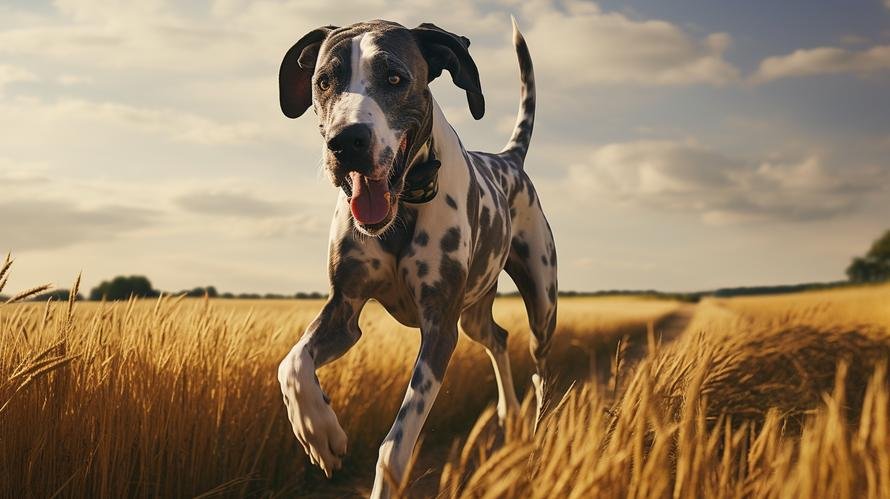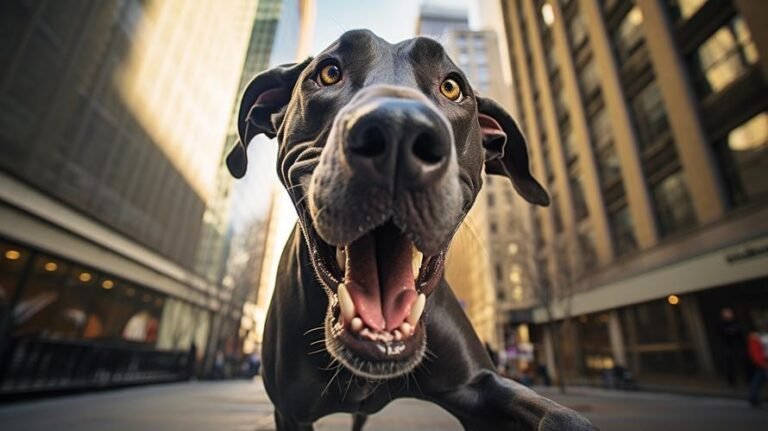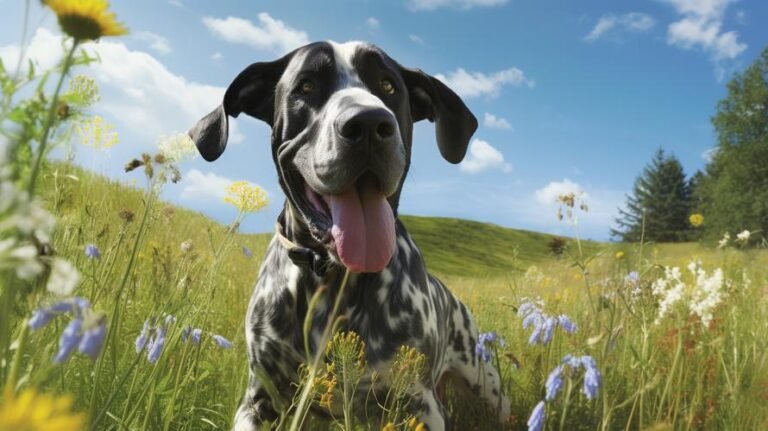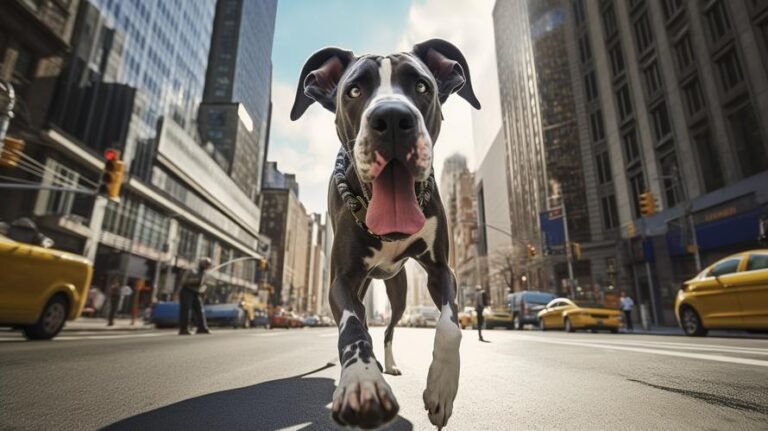Did you know that the Great Dane is also known as the “Apollo of Dogs?” Certainly, you can imagine that any creature with a nickname like that would need to be supremely majestic and magnificently grand, right? Well, meet the Great Dane. This breed is often likened to a gentle giant, known for its unique blend of grace, power, and dignity. Much like the Greek god they’re named after, the Great Dane stands tall and proud, drawing attention and admiration nearly everywhere they go.
However, the question that troubles many potential dog owners is whether a Great Dane is a difficult dog to raise and care for. Given their incredible size and distinct personality, this is a valid concern. Let’s explore this query together in this detailed piece, which will talk about their temperament, exercise needs, grooming demands, and health issues.
Great Danes have a history dating back thousands of years. Ancient Egyptian artwork dating back to 3000 B.C shows dogs strongly resembling modern-day Great Danes. In more recent history, they were bred in Germany to be boar-hunting dogs, and their size and power made them exceptional at their job. Despite their initial role, they evolved into noble companions of knights and aristocracy. This evolution was likely due to their characteristically polite manners, sweet-natured dispositions, and remarkable loyalty.
When it comes to temperament, Great Danes are definitely misjudged. Sure, their towering stature can be intimidating, but they have incredibly gentle and soft hearts. They are known for their friendliness and are often pointed out as one of the best breeds for kids due to their protective yet patient nature. Despite their size, many Great Danes believe, or rather dream, they are lap dogs. So, if you’re picturing peaceful evenings with a tiny pup curled at your feet, prepare to adjust your vision. A Great Dane might decide he fits perfectly on your lap!
However, you must remember that every dog, regardless of the breed, is influenced by a variety of factors including teaching, socialization, and past experiences. Well-socialized Great Danes are generally polite towards other animals too. They don’t have a high prey drive, so chasing down cats or other small animals is typically not an issue with them. Yes, some Great Danes may be less friendly than others due to individual personality traits, but by and large, they’re known as gentle giants.
Now, let’s dive into their exercise needs. Don’t get fooled by their enormous size; Great Danes aren’t particularly high-energy dogs. Their exercise requirements are surprisingly moderate. A couple of short to moderate walks each day, along with some playtime are usually enough for this breed. They aren’t the best partners for long-distance runs, but they do enjoy a game of fetch. An adequately exercised Great Dane is a calm and quiet companion inside the house.
Their grooming is not overly demanding either. Great Danes have short coats that shed moderately, but regular brushing will help keep shedding in check. They do not have a strong odor and only need to be bathed occasionally. However, they do drool, especially after eating and drinking, so keep some wipes handy.
When it comes to feeding, Great Danes can seem quite expensive. They have robust appetites, fitting their large bodies. Despite this, it is essential to use portion control to prevent overeating and obesity, which could exacerbate potential health issues.
Speaking of health issues, Great Danes do have some breed-specific health problems. One of the biggest concerns is bloat, a rapid expansion of the stomach that can be lethal if not addressed immediately. They also have a shorter lifespan, typically 7-10 years, due to their size and genetic predispositions. Some may also suffer from heart disease and certain types of cancer.
Bringing a dog home, let alone a Great Dane, is not a small responsibility. But Great Danes, similar to all dogs, simply need love, care, good nutrition, training, and socialization to thrive. Once you fulfill their needs, they reward you with immeasurable friendship and loyalty. Their size and some health concerns do present challenges, so if you’re set on bringing a Great Dane into your life, it’s worthwhile considering pet health insurance to help manage the costs.
So, at the end of our exploration, are Great Danes difficult dogs? The answer will vary based on your lifestyle, commitment, and what you’re looking for in a dog. If their size or potential health issues do not intimidate you, and if you’ve got room in your home and heart for a gentle giant, a Great Dane can be an excellent addition to your family, bringing an unwavering amount of love and happiness to your life.



